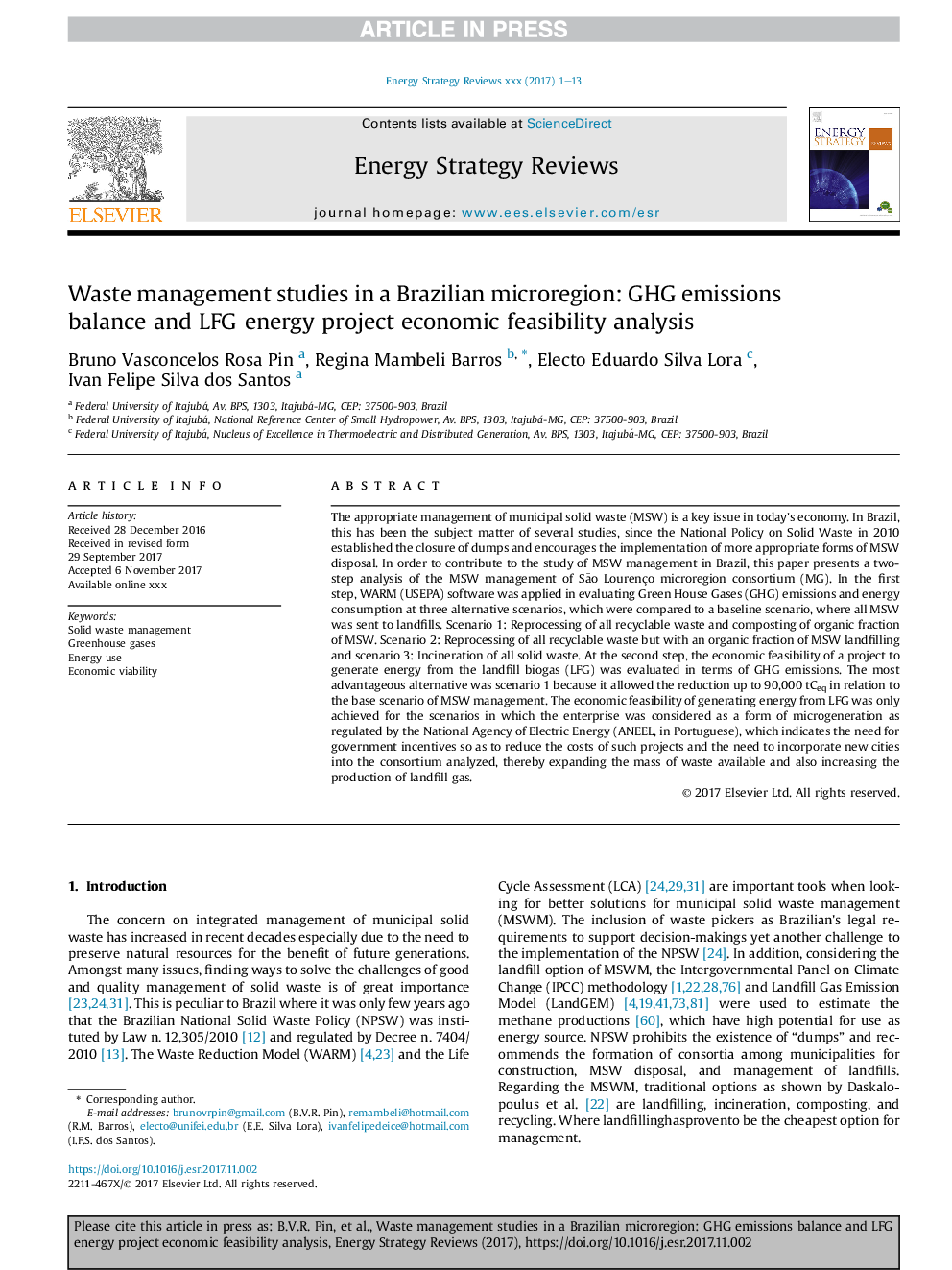| Article ID | Journal | Published Year | Pages | File Type |
|---|---|---|---|---|
| 7434616 | Energy Strategy Reviews | 2018 | 13 Pages |
Abstract
The appropriate management of municipal solid waste (MSW) is a key issue in today's economy. In Brazil, this has been the subject matter of several studies, since the National Policy on Solid Waste in 2010 established the closure of dumps and encourages the implementation of more appropriate forms of MSW disposal. In order to contribute to the study of MSW management in Brazil, this paper presents a two-step analysis of the MSW management of São Lourenço microregion consortium (MG). In the first step, WARM (USEPA) software was applied in evaluating Green House Gases (GHG) emissions and energy consumption at three alternative scenarios, which were compared to a baseline scenario, where all MSW was sent to landfills. Scenario 1: Reprocessing of all recyclable waste and composting of organic fraction of MSW. Scenario 2: Reprocessing of all recyclable waste but with an organic fraction of MSW landfilling and scenario 3: Incineration of all solid waste. At the second step, the economic feasibility of a project to generate energy from the landfill biogas (LFG) was evaluated in terms of GHG emissions. The most advantageous alternative was scenario 1 because it allowed the reduction up to 90,000 tCeq in relation to the base scenario of MSW management. The economic feasibility of generating energy from LFG was only achieved for the scenarios in which the enterprise was considered as a form of microgeneration as regulated by the National Agency of Electric Energy (ANEEL, in Portuguese), which indicates the need for government incentives so as to reduce the costs of such projects and the need to incorporate new cities into the consortium analyzed, thereby expanding the mass of waste available and also increasing the production of landfill gas.
Related Topics
Physical Sciences and Engineering
Energy
Energy (General)
Authors
Bruno Vasconcelos Rosa Pin, Regina Mambeli Barros, Electo Eduardo Silva Lora, Ivan Felipe Silva dos Santos,
